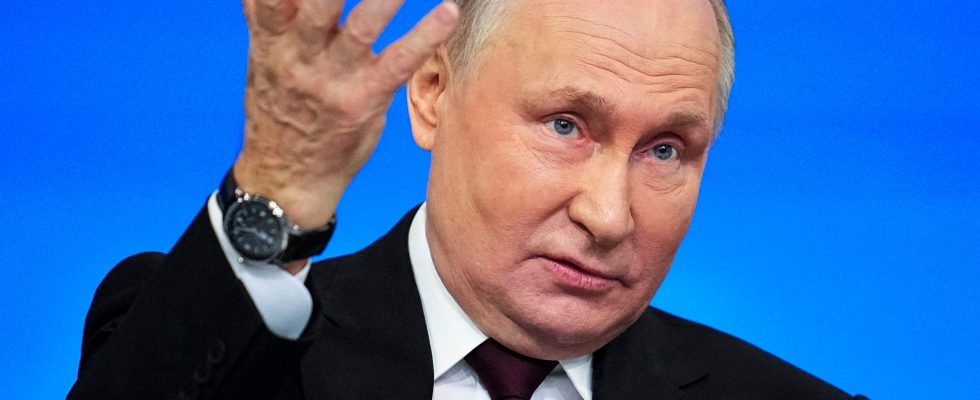This is a constant in Russian politics: Vladimir Putin only speaks to announce good news. Unpopular decisions, disasters, bereavements, failures, the Russian president leaves them to his lieutenants. No doubt it was for this reason that in 2022, Vladimir Putin dispensed with his “Direct Line”, an essential television event since he came to power more than twenty years ago. Live on Russian television, the president answers questions from carefully selected journalists and citizens. The opportunity for him, as a general rule, to appear as a leader who listens to the people and is concerned about their well-being, to award satisfaction to his own action and to set the tone for his future policy.
If, last year, Putin had given up, it was because his situation hardly lent itself to the exercise. In Ukraine, the Russian army had just suffered two heavy defeats in quick succession, in Kharkiv and Kherson, and Vladimir Putin had to resolve to launch a “partial mobilization” with chaotic beginnings. A year later, the picture is very different. The Ukrainian counter-offensive has failed, the Russian army is on the attack, and on the domestic front, the economy, driven by the mobilization of the arms industry, is doing better than resisting. It is also by listing the positive economic figures, growth at 3.5%, industrial production up 7.5%… that Vladimir Putin began his “direct line” this Thursday, December 14. On domestic issues, as on those relating to the international situation, his speech was that of a person sure of his facts.
Certain that Western support for Ukraine will soon dry up altogether (“For the moment, Ukraine receives everything for free, but the party will soon be over,” he assured), Putin returned to his antiphon : the triptych “Denazification, demilitarization and neutral status of Ukraine”. By giving this speech, “Putin wanted to present the West with a fait accompli: Russia will not only obtain the total capitulation of Ukraine, but will install an allied regime there, and the south-east of Ukraine will be attached to Russia”, summarizes political scientist Tatiana Stanovaïa, in an analysis written for the Carnegie center. The absence of open threats made against Westerners must, according to her, be analyzed in the same light: “His surprisingly calm and peaceful rhetoric should once again underline his certainty in his position of strength: on the military level in relation to to Ukraine, on a moral, historical and geopolitical level in relation to the West”.
The 2024 presidential election, for which Vladimir Putin declared himself a candidate on December 8 after several months of false suspense, was barely mentioned. Moreover, Putin did not even take advantage of the opportunity of this “direct line” to indulge in one of his favorite exercises: criticizing the Russian administration after a citizen complained to him about direct, the ideal pretext to dramatize an old Russian proverb, “the Tsar is good, his boyars are bad”.
Nothing like this this year. Faced with complaints about the amount of pensions, the chronic lack of money in hospitals, the shortage of drones for the troops on the Ukrainian front, the Russian president came to the defense of his civil servants. “He did not behave like a candidate making promises, but like a leader who owes nothing to anyone,” points out Tatiana Stanovaïa.
An indifference which reflects the way in which the Kremlin intends, according to several sources cited by the independent Russian press, to treat this electoral campaign: as a simple formality without much interest. In short, in foreign and domestic policy, Vladimir Putin seeks to impose the narrative that he has already won the game.
